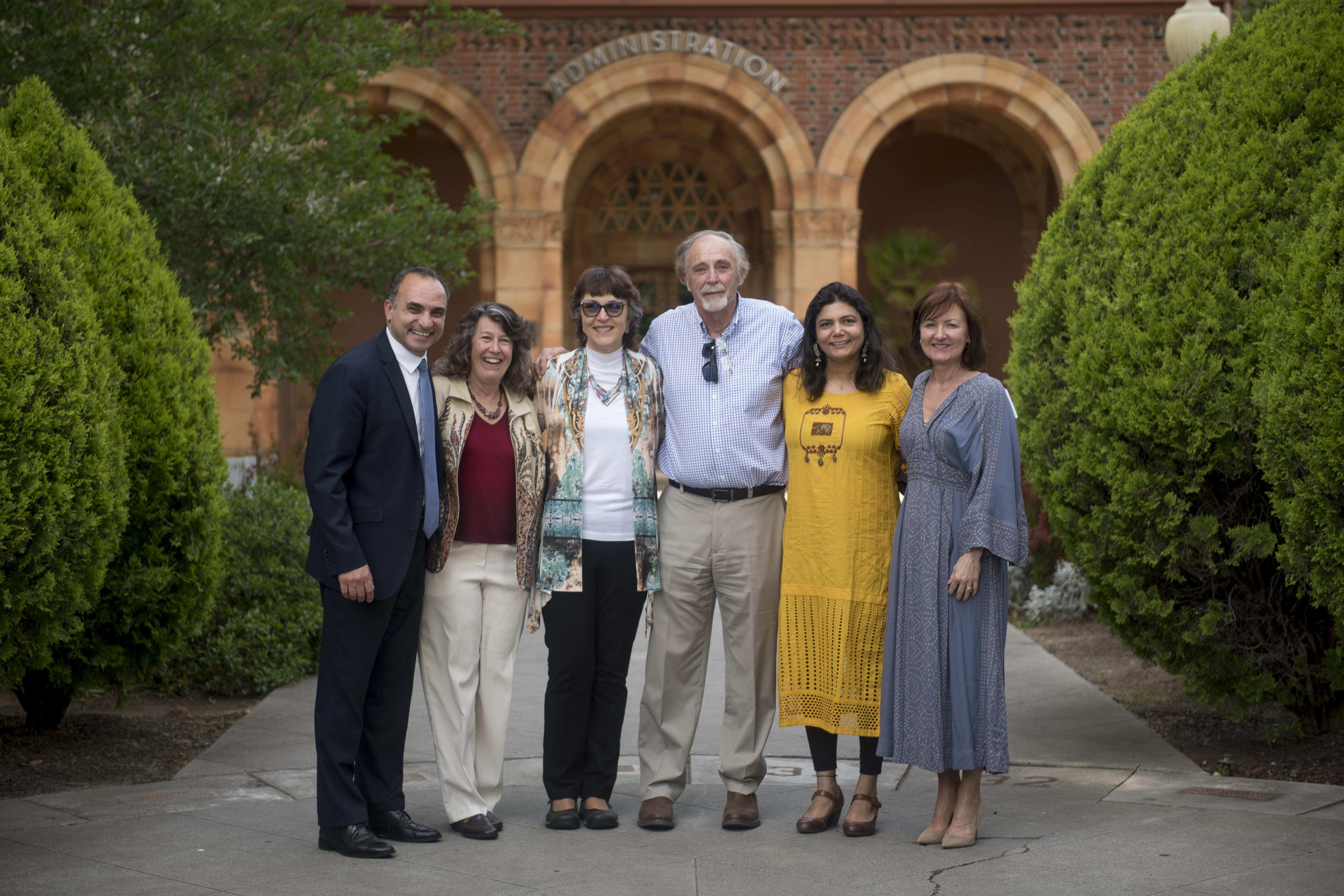School of Social Work Secures $850,000 Gift for Superior Region Endowment

(Jessica Bartlett, University Photographer)
Striving to meet future social service personnel demands in the North State, California State University, Chico’s School of Social Work received an $850,000 donation for its Distributed Learning Program (DLP) to help provide accessible education in the North State and increase the number of professional social workers committed to this region.
The financial gift is a partnership between the Superior Region Mental Health Workforce, Education, and Training Partnership; and CSU, Chico, which is committed to delivering accessible social work education.
Designed by CSU, Chico after surveying the need for social workers in the North State, the DLP is a hybrid educational model, blending online and in-person instruction to accommodate students who are not able to attend courses in a traditional style. It specifically targets the North State to increase accessibility to social work education in the 16-county Superior Region, which reaches from Lake County to the Oregon border.
The Superior Region funds are dedicated to an endowment capable of sustaining an operational level of the DLP in partnership with the College of Behavioral and Social Sciences. The resulting endowment will enable the University to continue to offer bachelor’s and master’s degrees in social work to students living outside of the Chico area through the DLP in perpetuity.
“The importance of the endowment is that it continues our effort to expand mental health workforce capacity throughout the Superior Region,” said Ken Crandall, a lecturer in the School of Social Work, as well as the coordinator for the Superior Region Workforce, Education, and Training Partnership.
The Superior Region gift is the culmination of more than a decade of work, going back to the days when CSU, Chico President Gayle Hutchinson was dean of the College of Behavioral and Social Sciences. With the funding now secured, Hutchinson is excited to see the DLP continue educating future social workers and to witness what the program can grow into.
“The Social Work Distributed Learning Program has been an important program in the North State for many years,” Hutchinson said. “I’m grateful to the Superior Region for its significant funding, as well as its support and longstanding partnership.”
Since 2012, 166 students have earned degrees from the School of Social Work’s DLP, including 45 bachelor’s and 121 master’s degrees. Butte County residents lead the way, with 48 degrees (13 bachelor’s and 35 master’s) and Shasta County residents have the second-highest total, with eight bachelor’s and 24 master’s degrees, for 32 total.
Employing a “Grow Our Own” model, the DLP also seeks to educate and train social work students in the North State, particularly in the state’s rural areas, where social service workers can be few and far between. The idea is that after students graduate, either with a bachelor’s or master’s degree, they will continue working in North State, optimize the use of existing resources, and develop strategies to best serve the varied needs of their rural communities and clientele.
Seema Sehrawat, a professor in the School of Social Work, said the DLP students’ backgrounds are as diverse as the students themselves, ranging from part- and full-time workers to stay-at-home parents who live in a rural community with otherwise limited educational options. She said that access, affordability, and minimizing family and life disruptions were all central to the University’s approach in developing this partnership.
“Our guiding thought was, ‘How can we provide a high-quality career preparation program in social work for a full-time working single mother living in, say, Happy Camp, who has transportation restrictions and family constraints?’” she said.
Sehrawat said one goal of the endowment has been to establish the DLP as a model for the future, providing ways to overcome obstacles that stand in the way of earning a university education.
“Our future is brighter with professional social workers serving the North State in various capacities,” Sehrawat said. “We’re hopeful that with programs like the DLP and the Superior Region endowment in place, the tremendous demand for professional social workers in the North State will be met.”


